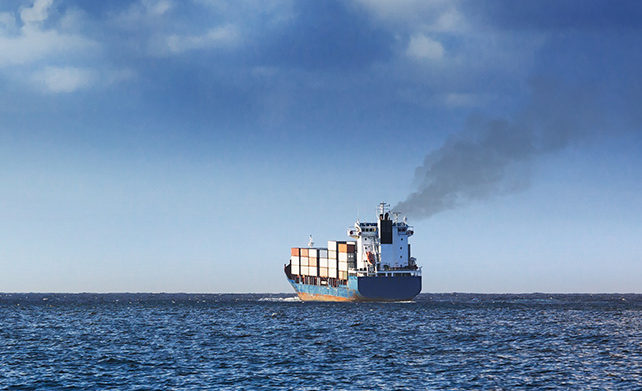BIMCO: proposes a new option for reducing emissions in the maritime industry
The international transport association BIMCO proposes a new option that could help in the quest for reducing emissions in the maritime industry.
Although it has already been proposed to limit the speed of ships as a way to reduce their CO2 emissions, the BIMCO solution goes one step further to propose limits to the power of ship propulsion.
The association argued that measuring the speed of a ship was not an accurate exercise, and the power of ship propulsion, on the other hand, can be precisely controlled. It has been said that the propulsion power of a ship has a close correlation with speed.
“While it is imperative to ensure that GHG emission savings are maintained through slow steaming, it is also important that homeowners have incentives to innovate,” said Lars Robert Pedersen, deputy secretary-general of BIMCO.
Japan has already suggested setting a limit for the power of ships. BIMCO recommends that the power limit must be derived for each sector of maritime transport from an assumed performance of an average ship sailing at the current average commercial speed within each sector.
The association intends to present the proposal at the inter-sessional meeting of the working group on the reduction of greenhouse gas emissions from ships at the IMO in London from October 11 to 15.
The propulsion power limit is proposed as a possible alternative to the proposal of slow or slow steaming navigation that has not been easily adopted by carriers.
The UK Chamber of Transport said earlier this year that the slow navigation initiative promoted by Greece and France might not be the best option on the grounds that there was no evidence that such limits would result in lower carbon emissions.
“Shipowners have already limited their speed by a considerable amount in the last decade and although these proposals have good intentions, further promoting slow navigation as a low-carbon alternative for international transport is simply not good enough,” Anna Ziou, director of policies in the UK Maritime Transport Chamber, said.
“They will give a false impression that the industry is taking action when in reality they will not offer a significant reduction in emissions.”
BIMCO argued that performance limitations would have the benefit of capturing the emission reductions already achieved since 2008 by slow steaming while maintaining the current competitive playing field between ships.
The approach of the limitation of the power level of ships is more realistic than slow steaming because it obeys the particular specifications of each ship. In the case of speed, ships are designed to have different EEDI speeds (efficiency) so that the optimum speed is particular for each vessel.


